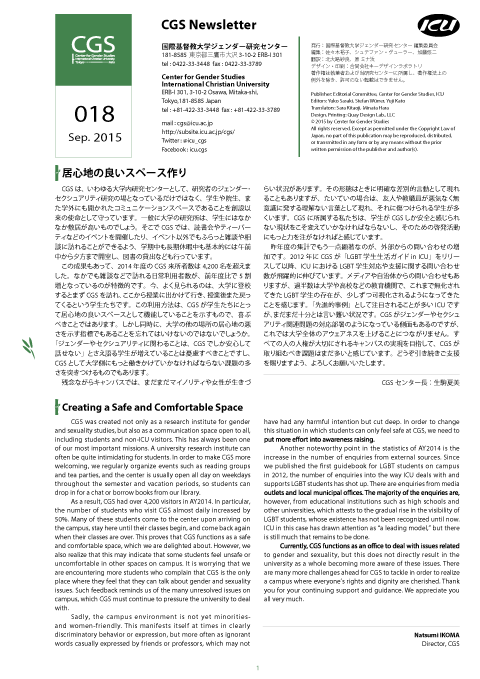Date & Time:
September 17th (Thu) 6:00p.m. - 8:30p.m.
Coming in the middle or leaving early are both OK.
No entrance fee; no reservation necessary(but we accept donations towards tea and snacks!).
Place:
Center for Gender Studies(CGS)
ERB-I 301
Subject:
How's Studying Abroad?
When you study abroad, you're placed in a different environment than usual in terms of both academics and your private life, whether you stay in a dorm or with a host family. Have you ever experienced difficulties related to gender and/or sexuality while you were living abroad? For those of you who came back from studying abroad this summer, for those thinking about studying abroad in the future, and for those studying abroad at ICU right now, let's talk about study abroad issues or experiences related to gender and sexuality!
We'll enjoy tea and coffee and snacks as we talk about gender and sexuality in a relaxed atmosphere. Worries we've discussed before include:
"I might be attracted to people of the same sex as me"
"I might be attracted to both men and women"
"I have no interest in romance"
"I have a woman's body, but I want to be seen as a man"
"I have a man's body, but I want to be seen as a woman"
"I don't want others to determine my gender for me"
"I don't want to put a label on my sexual identity."
Besides these examples, if you have something else in mind and want to talk it over, please feel free to bring it up. With beverages and snacks prepared, we are waiting for you to come chat with us!
(Coordinators: Lindsay Morrison / Kato Yuji)

